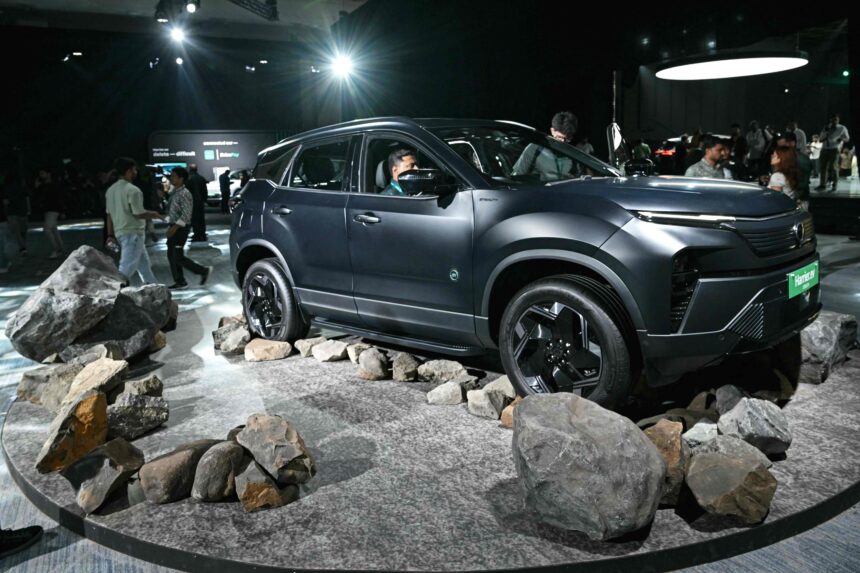TOKYO – The global auto industry has been rocked by China’s decision to restrict exports of rare earth magnets that are crucial to making vehicles.
With a near monopoly on the output of rare earth elements, Beijing is using them as a key weapon in its trade war with Washington.
China accounts for more than 60% of rare earth mining production and 92% of global refined output, according to the International Energy Agency, driven by generous state subsidies and lax environmental protections.
As the trade war with the United States (US) has developed, Beijing has required Chinese companies since April to obtain a licence before exporting these materials, including rare earth magnets, to any country.
While these rules were expected to be relaxed after a tariff deal in Geneva last month, industry stakeholders said they have not been eased at a sufficient pace.
“Since early April, hundreds of export licence applications have been submitted to Chinese authorities, yet only approximately one-quarter appear to have been approved,” the European Association of Automotive Suppliers (CLEPA) said Wednesday.
“Procedures are opaque and inconsistent across provinces, with some licenses denied on procedural grounds and others requiring disclosure of intellectual property-sensitive information,” it added.
US Treasury Secretary Scott Bessent this month said Beijing was “blocking certain products it had agreed to market as part of our agreement”.
China, however, defended its “common international practice”.
Rare earths are 17 metals used in a wide variety of everyday and high-tech products, from light bulbs to guided missiles.
Two of them – neodymium and dysprosium – are crucial to making powerful magnets for electric vehicles and wind turbines.
These components play an essential role in “electric motors, sensors, power steering, and regenerative braking systems, among other advanced features in modern vehicles”, consultancy firm BMI said.
China’s restrictions highlight the world’s heavy dependency, with Europe importing 98% of its rare earth magnets from the country, BMI said.
It noted that while the European Union has introduced regulations to boost its production of critical minerals, “rare earth processing operations in Europe not only struggle to compete with Chinese producers on cost, but also lack the necessary scale to supply its automotive sector”.
Industry group CLEPA added that efforts undertaken in Europe to diversify supply sources “offer no short-term solutions and cannot address the acute risks currently facing supply chains”.
The auto industry is already suffering globally.
“With a deeply intertwined global supply chain, China’s export restrictions are already shutting down production in Europe’s supplier sector,” said CLEPA secretary general Benjamin Krieger.
The group on Tuesday reported “significant disruptions” in Europe, where these restrictions “have led to the shutdown of several production lines and plants”.
It warned that “further impacts (were) expected in the coming weeks as inventories deplete”.
“The slow pace of customs formalities for shipments requiring a valid export licence poses a problem,” Hildegard Muller, president of Germany’s automotive industry association VDA, told AFP.
“If the situation does not evolve quickly, production delays, or even production losses, can no longer be ruled out,” she added.
While not citing “direct restrictions” for itself, Germany’s Mercedes-Benz said it was maintaining “close contact” with its suppliers, while Japan’s Suzuki Motor said Thursday it “had ceased production of certain models due to a component shortage”, including rare earths, the Nikkei daily reported.
US auto giant Ford had to halt production for a week in May at its Chicago plant making the Explorer SUV because of shortages, Bloomberg reported.
The firm told AFP that it does not comment on “supplier issues”.
Indian scooter-maker Bajaj Auto recently warned the restrictions could impact its production in July.
“The slow processing of (export) requests appears to be causing significant supply shortages,” Cornelius Bahr from IW Economic Institute told AFP.
“Statements (by German companies) indicating that stocks will only suffice through the end of June should certainly be taken seriously,” he added.
The electronics industry, another major consumer of rare earths, could also suffer.
“Concern is visibly growing, many companies currently have resources only for a few weeks or months,” said Wolfgang Weber, president of Germany’s electronics industry association ZVEI.
While uncertainty remains, talks between US president Donald Trump and Chinese counterpart Xi Jinping on Thursday seem to have paved the way for a potential easing by Beijing.
“There should no longer be any questions respecting the complexity of (exporting) Rare Earth products,” Trump wrote on his Truth Social platform after their phone call.
– Nampa/AFP



